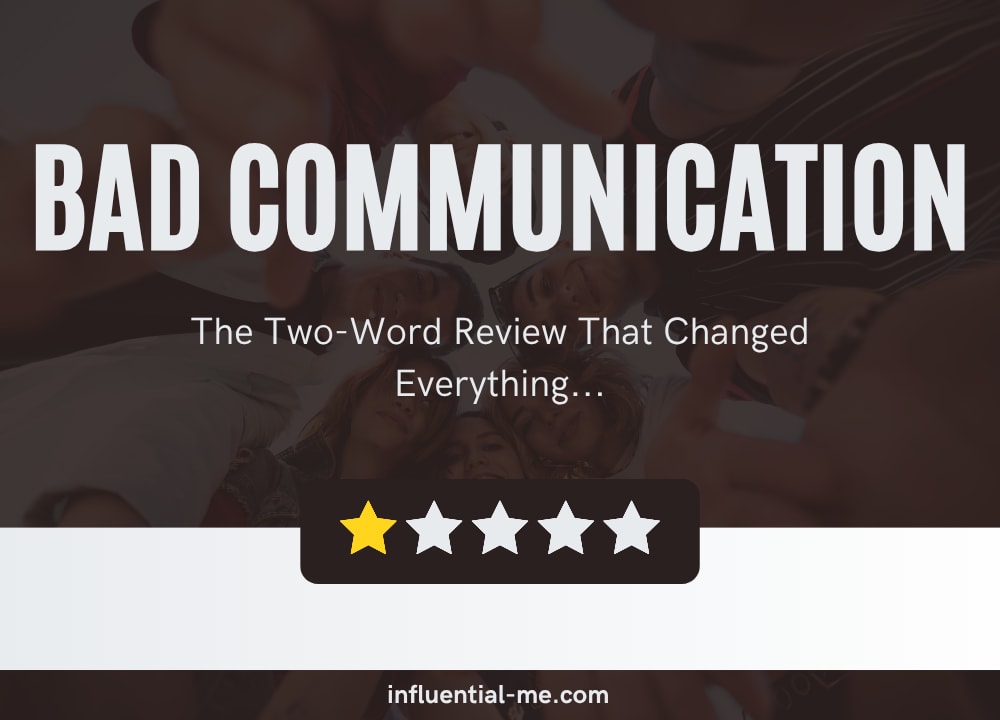The Two-Word Review...
That changed everything
Hey everyone, I want to start with a moment of professional vulnerability—though the setting was far from professional. It was a recent weekend getaway, booked through Airbnb, and I was determined to truly disconnect.
I arrived, followed the self-check-in instructions perfectly, and then—in a moment of pure holiday bliss—I placed my phone in a drawer and forgot about it for two whole days. My instructions for the weekend were simple: relax.
Meanwhile, the host, dutifully checking in, was sending messages: “Have you arrived? Any issues?” I saw none of them. When I finally emerged from my digital blackout, I sent a quick, cheerful message: “Sorry, didn’t see your messages! On vacation, all good here.”
I thought nothing more of it until I got my guest review. It read simply:
“Bad communication.”
Ouch.
From Defensive to Definition
My initial reaction was pure frustration. I didn’t think I had bad communication! I followed every instruction! I had no problems! Why did I need to talk to them? My internal argument went, “I communicated what was necessary, which was nothing.”
It felt personal. Was I a bad communicator? Unreliable?
This is where the real professional lesson kicked in. I realized the host’s review wasn’t a judgment of my ability to communicate; it was a reflection of their unmet expectation.
My expectation: I’m on holiday; no news is good news. Their expectation: I’m running a business; I need confirmation of a safe arrival.
We both acted logically, but we were working from two completely different scripts. The “bad communication” wasn’t about what I said (or didn’t say); it was about what the other person heard (or failed to hear).
🎧 The Golden Rule: It’s Not What You Say, It’s What They Hear
In professional settings, particularly in our modern world of remote work and asynchronous collaboration, this principle is crucial to effectiveness.
Great communication isn’t just about delivering a message; it’s about managing the perception of that message.
You might write the clearest email in the world, but if your colleague expects a response within an hour and you reply 24 hours later, they might perceive:
Disrespect.
Low priority.
Sloppiness.
Their perception becomes their reality, which is then labelled as “bad communication.”
💡 The Crucial Shift: From Intent to Impact
Stop asking: “Did I clearly state my intent?” Start asking: “Did I clearly define the impact and expectation for the receiver?”
The solution is not to become glued to our phones (or inboxes), but to build Communication Charters—written or unwritten agreements that set the stage.
🚀 Actionable Strategy for Remote Teams
As many of us work with distributed teams, we’re constantly juggling different work styles. This is where we need to proactively define the scripts.
The single biggest skill we can develop is Setting Expectation SLAs (Service Level Agreements):
Define Response Time: Don’t just rely on good manners. Explicitly agree: “For Slack messages, expect a reply within 4 hours during business hours. For email, 24 hours.”
Define Emergency Protocol: What truly requires a real-time interruption? If a project is on fire, how should they reach you? (E.g., “Only use a direct phone call for a production-stopping emergency.”)
Define Critical Check-ins: For example, my host needing confirmation of my arrival establishes non-negotiable status checks. Example: “Regardless of progress, we will send a brief, 5-line status update every Friday by 5 PM.”
My Airbnb host was operating under an implicit SLA: Check-in confirmation required. My vacation brain violated it.
The lesson? Don’t be mad at the reviewer for calling your communication bad. Instead, focus on defining the goalposts before the game starts.
You are not a bad communicator. You just had an unmanaged expectation. Let’s work on creating clear ones today.



